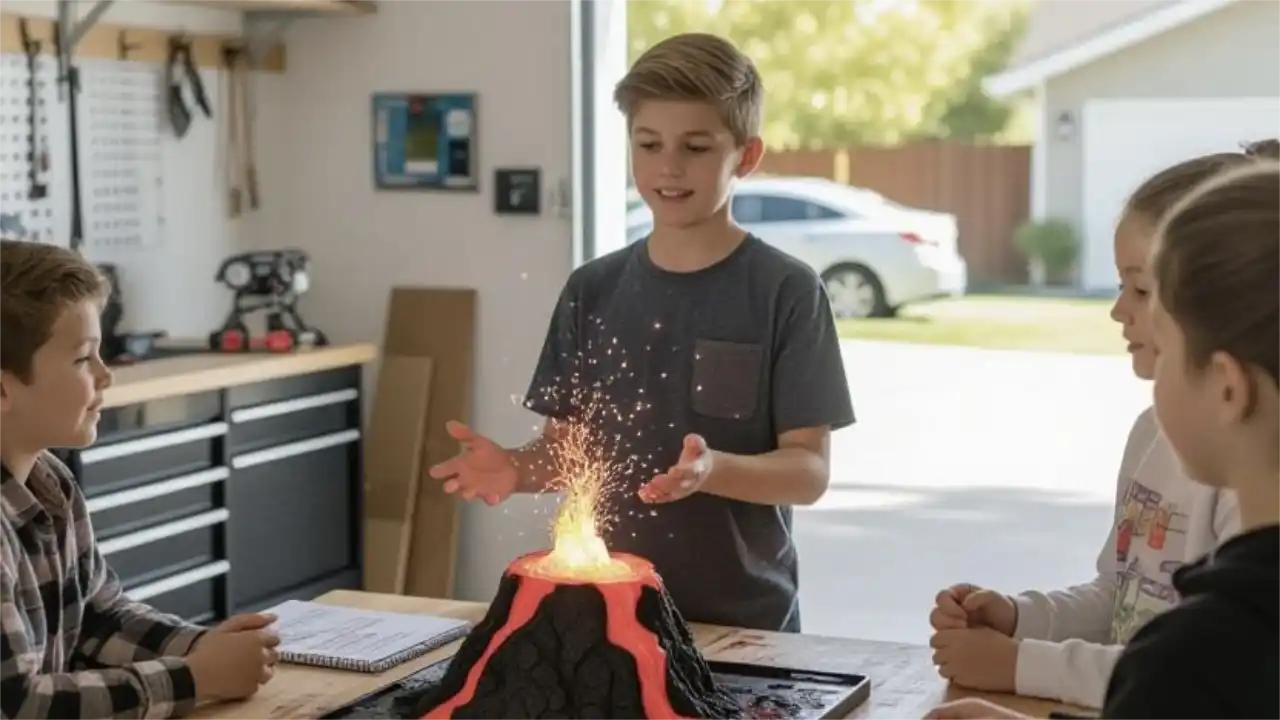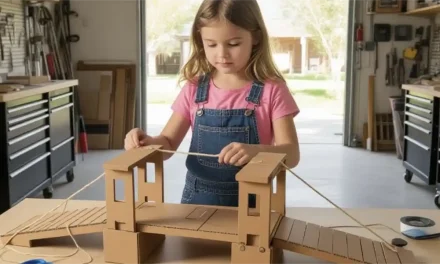
Integrating Learning into Family Activities: Blend Teamwork and Competition in Science Fairs
S
ome projects are built alone—but they grow stronger through outside eyes. Science fairs give kids both the thrill of creation and the lessons of teamwork. Kids who build a project on their own and then refine it with help learn to hold their ideas lightly—confident enough to present, open enough to revise. That back-and-forth mimics how real discoveries emerge: not in isolation, but through shared critique and iteration. Whether using a kit or designing from scratch, they begin to see feedback not as correction, but as contribution. Asking, “What does it need?” shifts the focus from defending a result to improving it together.
My son once built a volcano model, delighted by the lava but blind to the missing explanation. A friend pointed it out, and instead of brushing it off, he invited help. Together they revised the display, adding diagrams and a clear connection between gases and geology. That habit stuck. Later, on a robotics team, he welcomed edits from teammates and helped lead a creative breakthrough. His shift—from guarding his work to opening it up—transformed how he collaborated.
Try hosting small home science showcases. Let each child present an experiment or model, then invite suggestions from siblings or friends. Ask afterward: What changed? What stayed? These sessions build the muscle of revision and the habit of thoughtful teamwork—skills that carry over into classrooms, clubs, and any group effort that demands both independence and cooperation.
Integrating Learning into Family Activities

Integrating Learning into Family Activities: Screens or Stories: What Shapes the Mind?
Choosing stories over screens nurtures imagination and empathy. Learn how storytelling supports healthier mental development and curiosity.

Integrating Learning into Family Activities: Hunt for History with Scavenger Games
History scavenger hunts bring learning to life. Explore artifacts, stories, and places to build curiosity and memory.

Integrating Learning into Family Activities: Make Family Game Nights Educational
Game nights can build logic, communication, and cooperation. Choose games that encourage learning while keeping play joyful.
Table of contents

Primordial Soup for the Mind: Navigation
Navigate the book Primordial Soup for the Mind.
TIPS
- Cheer both tries—solo and team matter.
- Ask, “What does it need?” to spark the fix.
- Keep a journal for their results.
- Suggest weekly fair sessions.
ACTIVITIES
- Build Bash: Make a model, vie, then fix it as one, 15 minutes.
- Why Win: Test ideas, pick a champ, share tricks, 10 minutes.
EXAMPLE
My daughter’s volcano failed alone—teaming up got her a ribbon.

Download “Primordial Soup for the Mind: A Parent’s Guide to Nurturing Intellectual Growth”
Enter your information to get this article and hundreds more as part of the FREE book Primordial Soup for the Mind.
Share your thoughts with the Thought Academy community in the Comments section below.

Sharpen those skills!
Enter your information to get our FREE practice exercises so you can hone your critical thinking and reasoning skills!







0 Comments